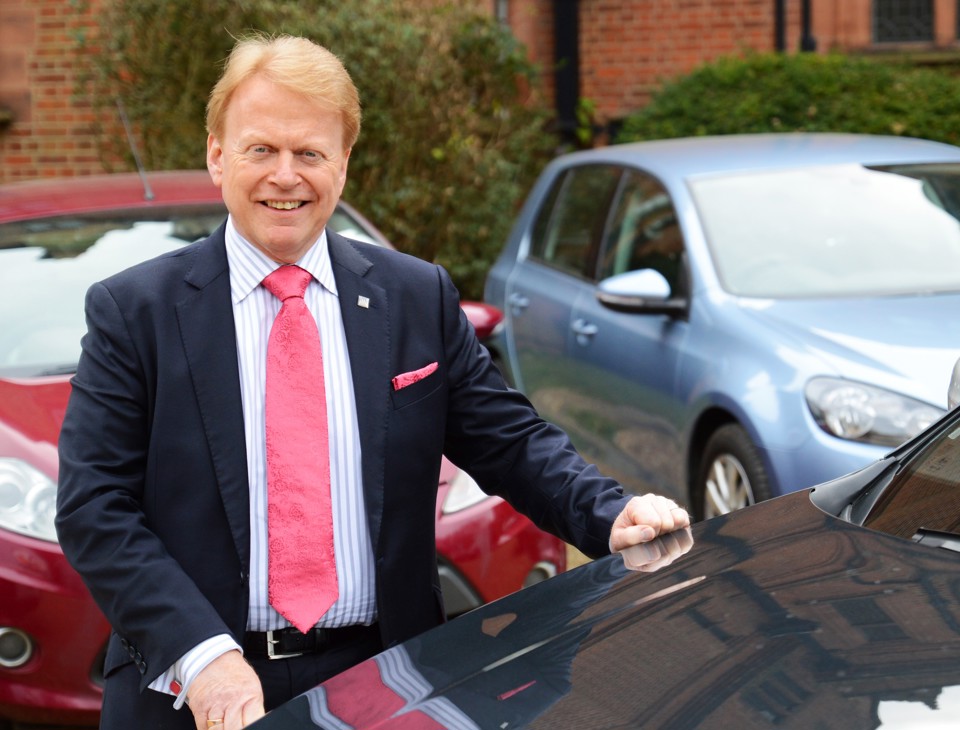By Steve Nash, CEO of the Institue of the Motor Industry (IMI)
There is much speculation that the government is planning to move forward the ban on the sale of new petrol and diesel cars to 2030, with hybrids given a reprieve to 2035.
I admire the confidence of those feeding this speculation – apparently there are assurances that the infrastructure will be ready by this date.
But there is so much more to consider than simply the charging infrastructure.
Indeed, in some ways the charging network issue is relatively simple to resolve... It just needs investment, and rather a lot of it!
However, we won’t get the network we need if the government leaves it largely to private businesses to solve the problem, as it has done up to now.
The investments made by our government are paltry compared to other countries.
But I worry that a much bigger piece of the jigsaw has been forgotten.
What about the technicians to service and repair this new automotive technology which, in turn, will give motorists the essential confidence they need?
The automotive sector has seen – much like many other industries – massive falls in sales over the last 6 months as a result of Covid-19.
Right now, therefore, the appetite for recruitment and training is low as recent data attests.
Yet training of the existing workforce on these new drivetrains, as well as recruitment of the next generation of workers is vital.
The latest Department for Education (DoE) data shows that apprenticeship starts in the Automotive sector in July 2020 fell by 59% compared to the same period in 2019.
And the latest ONS data shows that approximately 2% of jobs in the sector have been made permanently redundant with potentially an additional 7,200 planned before the end of September.
Further underlying the financial pressures facing the automotive sector, over half (56%) stated that Covid-19 had increased the risk of insolvency of their business; an increase of 3% since last reporting.
Against this backdrop, and with so much of the country waiting to hear if new restrictions may impact business income further, does it really make sense to heap the pressure on an already beleaguered sector?
As we advance towards a zero-emission future, the technology that technicians will be coming into contact with is changing – resulting in high voltage electrics becoming commonplace.
Motorists driving electrified vehicles want to know that they are handing over their vehicle to someone who has the right skills.
Those who aren’t properly trained or equipped to work on electrified vehicles would be risking serious injury or potentially fatal shock.
The IMI TechSafe standards, endorsed by OLEV at the end of 2019, mean that electrified vehicle users can access the IMI Professional Register to check the electric vehicle technical competencies of technicians at their local garage.
This is a crucial step in giving car buyers confidence that their electric vehicle can be serviced, maintained and repaired by a garage with the right skills – and that removes a key barrier to EV adoption.
But it’s also important that government looks at investment in skills training to support a sector that is currently severely depleted by Covid-19, to ensure its zero emissions goals can be achieved.





















Edward Handley - 24/09/2020 17:32
I worry when I see the headlines saying things like "Fleets want the ban on new ICEs brought forward to 2030" because despite talking to a lot of fleet operators, its not something I have heard said, and I believe that it is probably technically impossible. There is a grave danger in "I'm greener than you" brigade getting caught up in a stampede while losing sight of the big picture. The charging infrastructure is definitely an issue and while the manufacturers have made fantastic advances in battery technology, there are very few really fast chargers so far, and there certainly will not be enough for everyone by 2030. I do not think commuters and business travellers are prepared to wait 45 minutes to charge their cars going to or from work and "charger rage" will become endemic if anyone is late back to the charger when there's a queue waiting. Its bad enough at the pumps when someone fills up and then goes into the fuel station shop to buy supper for the family before paying for the fuel and moving the car. The experts promise us superfast chargers, but where is the electricity going to come from? Wind and solar energy are fine when the weather co-operates, but when it doesn't, and this being Britain that's frequently, you need nuclear energy to fill the gap. Oil and gas will not do because quite apart from the nonsense of burning fossil fuel to power "clean" cars it just takes too long for conventional power station turbines to get up to generating speed. We could of course build lots of new nuclear power stations to fill the gap, but to do that we would have needed to have started the building programme at least 10 years ago, and we didn't. What's more we won't - I doubt there will be more than 1 new nuclear power station generating electricity by 2030. Currently we buy the extra energy needed from France, but with Brexit that deal looks very dubious. If the continent is short of electricity there will be intense pressure on EDF et al to supply their EC colleagues and contracts or no, they will divert power to them over go-it-alone-Britain when push comes to shove, and who can blame them? I really hope this Eco-Grandstanding is ignored and the dates stay as they are, because rushing into a ban on ICEs is a disaster. Like all disasters it is also an opportunity and I bet that the demand for new petrol and diesel cars goes through the roof from 2028 onwards as the leasing companies and others invest huge sums in new ICE cars which they will stock pile and register before the cut off, because they know the demand for ICE powered cars and vans will be massive. Probably a good time to go into the secure mass car storage business, so if you know of any old MoD bases that are closing....